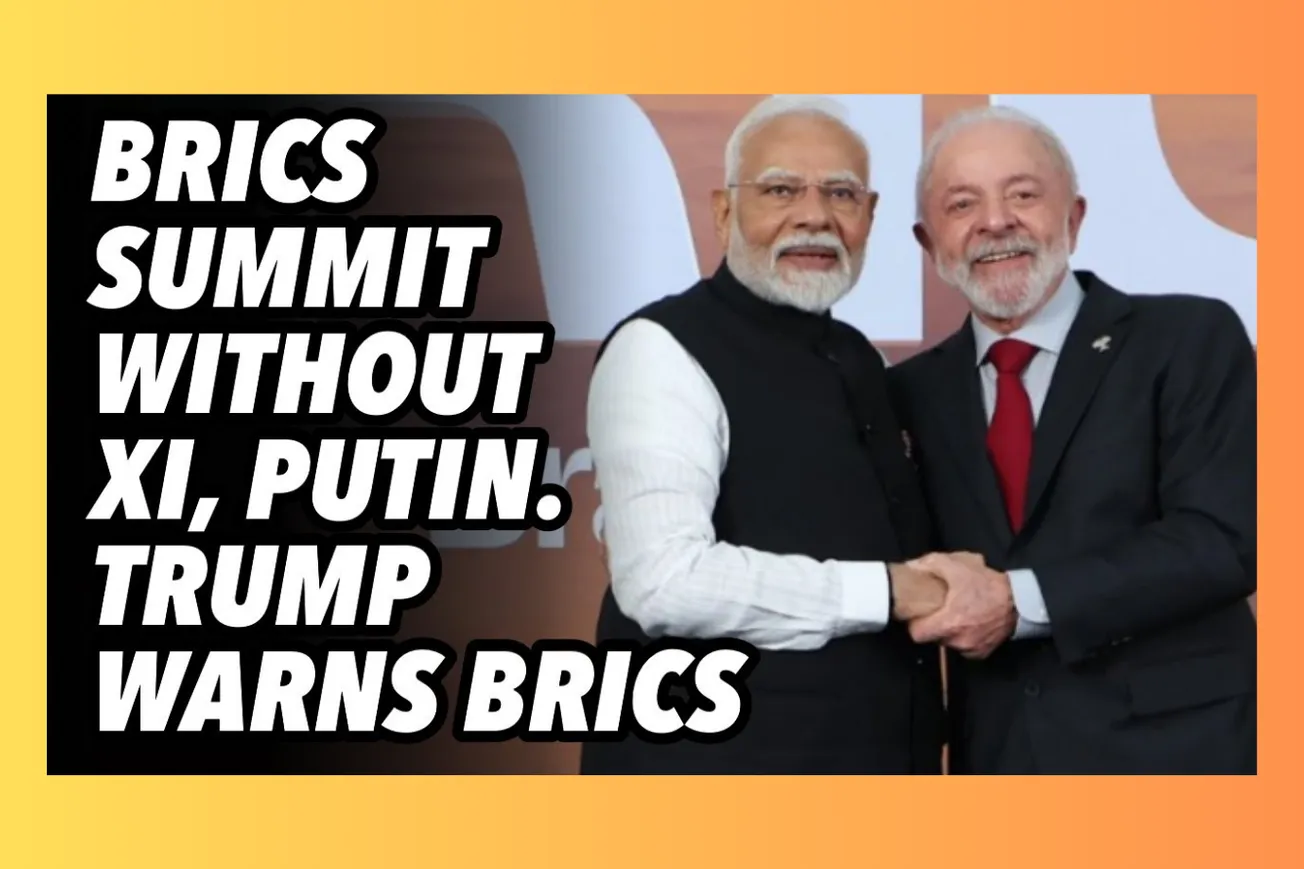Table of Contents
The BRICS summit in Brazil proceeded without its two most powerful leaders, sparking questions about the alliance's future direction.
Key Takeaways
- Xi Jinping missed his first BRICS summit ever, likely avoiding tensions with Modi without Putin present
- Putin skipped Brazil due to security concerns over his ICC warrant and potential flight interference
- BRICS expanded significantly with Vietnam and Indonesia joining as full members despite US pressure
- Trump threatens 10% tariffs on all BRICS-aligned countries, calling their policies "anti-American"
- China-India border tensions influenced Xi's decision to stay away from face-to-face meetings with Modi
- The Kazan summit already established major BRICS payment systems, making leader presence less critical in Brazil
- Colombia and Uzbekistan are moving closer to BRICS alignment, expanding the bloc's global influence
- US dollar weaponization through sanctions drove countries toward alternative payment systems
The Great Absence: Why Two Superpowers Stayed Home
- Xi Jinping's absence marks the first BRICS summit he has ever missed, contradicting speculation about his political position weakening within China. Chinese media coverage of Xi remains as prominent as ever, with no signs of internal challenges to his leadership. His reduced public visibility recently might indicate illness, but economic data shows China's situation has actually strengthened over recent months, not deteriorated.
- Putin's non-attendance follows a pattern of avoiding distant summits due to legitimate security concerns about his flight path. The ICC warrant creates additional complications, but the primary concern involves potential interference with presidential aircraft during long-distance flights from Moscow to Brazil.
- The partnership between Xi and Putin heavily influences their summit attendance decisions, with both leaders preferring to participate when the other is present. Without Putin there to mediate, Xi chose to avoid potential confrontations with Indian Prime Minister Modi amid rising China-India tensions.
- China-India border disputes have intensified recently, particularly after Pakistan used Chinese-supplied fighter jets and long-range air-to-air missiles in conflicts with India. These weapons reportedly shot down Indian aircraft, creating additional diplomatic friction between Beijing and New Delhi.
BRICS Expansion Accelerates Despite Leadership Gaps
- Vietnam and Indonesia have joined BRICS as full members, representing significant geopolitical shifts in Southeast Asia. Vietnam's membership particularly annoys Trump administration officials, who recently completed a trade deal with Hanoi only to see them align with BRICS immediately afterward.
- Indonesia's inclusion brings a massive, rapidly growing economy into the BRICS fold, representing one of the world's most strategically important developing nations. The country's fast economic growth and huge population make it a valuable addition to the anti-Western bloc.
- The "Greater BRICS" concept encompasses partner countries and aligned nations beyond full members, including Colombia and Uzbekistan. Colombia's leftist president has moved the historically pro-US South American nation toward BRICS alignment, joining the BRICS Bank alongside Uzbekistan.
- These expansions occurred despite the foundational work happening at the previous Kazan summit, where Putin presided over establishing payment systems and trading mechanisms. The Brazil summit serves as a follow-up to implement those decisions rather than create new breakthrough policies.
Trump's Tariff Threats Reveal BRICS Concerns
- Trump posted on Truth Social threatening 10% tariffs on any country aligning with "anti-American policies of BRICS," with no exceptions to this policy. His statement positions BRICS explicitly as an anti-American organization, acknowledging the bloc's challenge to US financial dominance.
- The tariff threat likely stems from frustration over recent BRICS expansions, particularly Vietnam's membership despite its new trade agreement with the United States. China has been using Vietnam as a transit state to circumvent American sanctions on Chinese goods.
- Colombia's movement toward BRICS probably triggered Trump's strongest reaction, given the country's historical status as America's closest South American ally. The current Colombian president's leftist policies and BRICS Bank membership signal a dramatic shift in regional alignments.
- Trump's threats follow his pattern of making bold tariff proclamations that he rarely implements, previously threatening 100% tariffs on BRICS before scaling back to 10%. These empty threats may actually accelerate countries' movement toward alternative payment systems.
The Dollar's Weaponization Backfires
- BRICS payment systems represent a response to extensive US sanctions rather than unprovoked aggression against the dollar. America's endless sanctioning of countries for various political disagreements destroyed trust in the dollar-dominated financial system established at Bretton Woods in 1944.
- The weaponization of international institutions including the OPCW, IAEA, United Nations, and OSCE has eroded confidence in Western-controlled organizations. Countries increasingly view these institutions as tools of American foreign policy rather than impartial international bodies.
- Trump demonstrates instinctual understanding of these problems but lacks the political courage to implement necessary solutions like removing sanctions and ending dollar weaponization. His approach of threatening additional punishment only drives more countries toward BRICS alternatives.
- A truly strategic American response would involve rebuilding confidence in the global financial system by walking back sanctions and guaranteeing the dollar's impartiality. Many Americans actually understand this need but lack leadership willing to make such fundamental policy shifts.
The BRICS summit in Brazil succeeded despite missing its two most prominent leaders, demonstrating the bloc's institutional maturity. Trump's tariff threats reveal American anxiety about losing financial dominance but offer counterproductive solutions that will likely accelerate the very trends he hopes to reverse.





